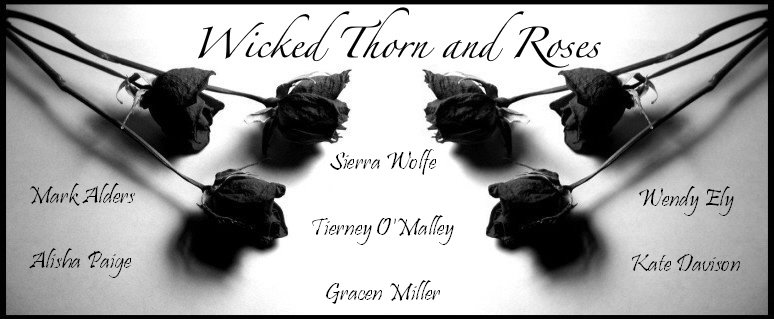Since Halloween is fast approaching and it is the favorite holiday of most paranormal authors, I thought I spend a few moments talking about the one aspect of writing that can bedevil and author faster than a demon-strike against a slayer in a dark alley in some urban jungle. I'm talking of course about dialogue.
On the surface, dialogue seems very easy. Unlike plotting, motivation, characterization, and narration, dialogue is something we use everyday, in conversations with our family, friends, co-workers and other assorted individuals that travel into our spheres. Why then is it that a reader can spot stilted dialogue a mile away while blindfolded and wearing earplugs? Because there is just something so wrong it throws the entire book off kilter. For me, bad dialogue is the literary equivilent of nails on a blackboard. I've put more than one book I've started reading aside due to bad dialogue. And I'm sure I'm not the only one who has. It just boggles the mind of how it ever got past editors like that....but I digress.
I fell in love with the magic of great dialogue while reading Tami Hoag's A Thin Dark Line back in 1994. By that point, I'd already been writing several years - some of it good, some of it not so good. But something profound struck me while reading the dialogue in that book: I could actually hear the characters speaking in my head. The hero in the novel is a sexy, hunky, yummy-yum Cajun cop or maybe ex-cop - can't remember now. From 1978-1992 I lived in the Florida Panhandle. In that time I met and became friends with a lot of people who had Cajun roots, or were straight out of the bayou. The cadence Ms. Hoag gave her hero when he spoke was so authentic, so genuine, I have since held her as the pinnacle for how an author should approach a character. And as far as I can remember she didn't use phonetic spellings.
Off I go to write my own stories. How would I approach them now that I'd learned this valuable lesson from another author? It was just the cadence that got me, though that was definately the aspect that made me stand up and take notice, it was the pure conversational way it was written.

And therein was the key.
Write dialogue as if you(r) characters are having a conversation with each other. Take those easy, unpressured moments when you are at your best, or the high tension moments when you're at your worst and use them. How do you react? How does it effect your speech? Do you clam up? Do you paint the air blue with expletives? Would your character do the same? Are they quick witted and sharp tongued? Or get all tied up and can't say the right thing when their love interest is within view? Whatever the situation, make it real. If it sounds forced to you - it will to your reader.

Now, historicals are another matter entirely. How do you get that taste of realism if and not sound stilted or forced when speech has definately changed over the years. If you read books by Jane Austen, Charles Dickens, or any number of classic authors, you'll find the dialogue much different from what you'd hear today - though not a great deal - It's still recognizable just a bit more formal than we're used to. I've heard a king's ransom worth of historicals in my days. Some have the phonetic spellings to indicated accents, some rely solely on cadence and slang to indicate class and station. As a reader it doesn't matter to me which is used, as long as the words read in a believable fashion. What it all boils down to, no matter the time period is that the characters have to sound as if they are sitting in the room with you.
At present, I'm staring at a book on my shelf in my office. Most of the books in here are reference materials. This book is titled Dialogue by Lewis Turco and is part of the Writer's Digest Elements of Fiction Writing series. I purchased it years ago, and for the life of me, I can't remember if I ever even cracked the cover open. Thumbing through it now, I see it takes in everything from Socratic Dialogues to taglines. Quite the breadth of knowledge. I'll have to read it again - or for the first time. However, I think for fiction writing, the only thing one need remember is to make it real.
-Kate



2 comments:
Now this post hit home for me.
In a recent review the reviewer said my dialogue was too romantic and therefore 'cliche' and only romance lovers will like the book (which is great because romance lovers read a lot of books--but that's a different story)
Why is it romance authors get painted with that stuff?! ARGH! I know when I want to get my wife into bed I say all sorts of silly things...she groans and laughs of course...
LOL
*hugs*
Mark.
Great thoughtful post! Dialogue is my favorite thing to write. I love writing it and reading it! But I agree, it has to be honest to a character's characterization.
Post a Comment